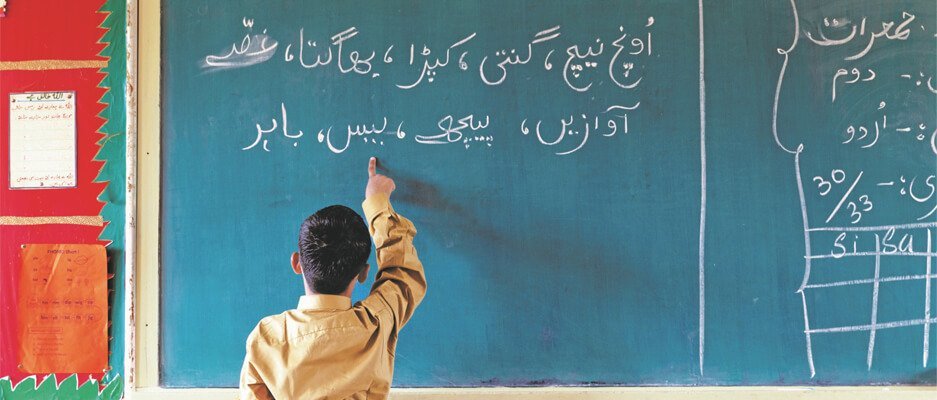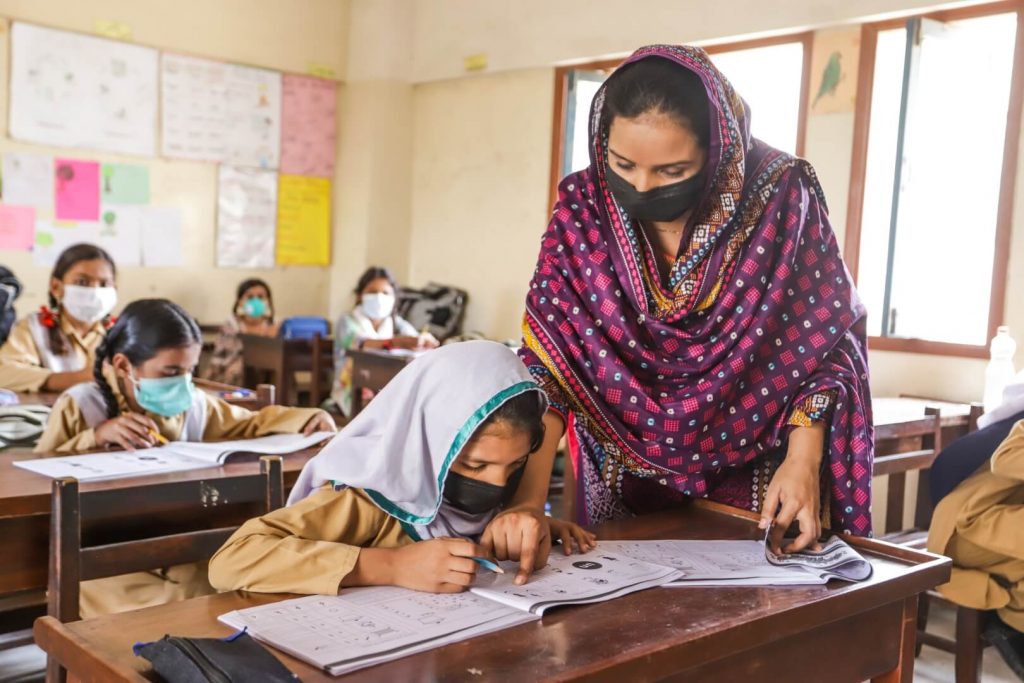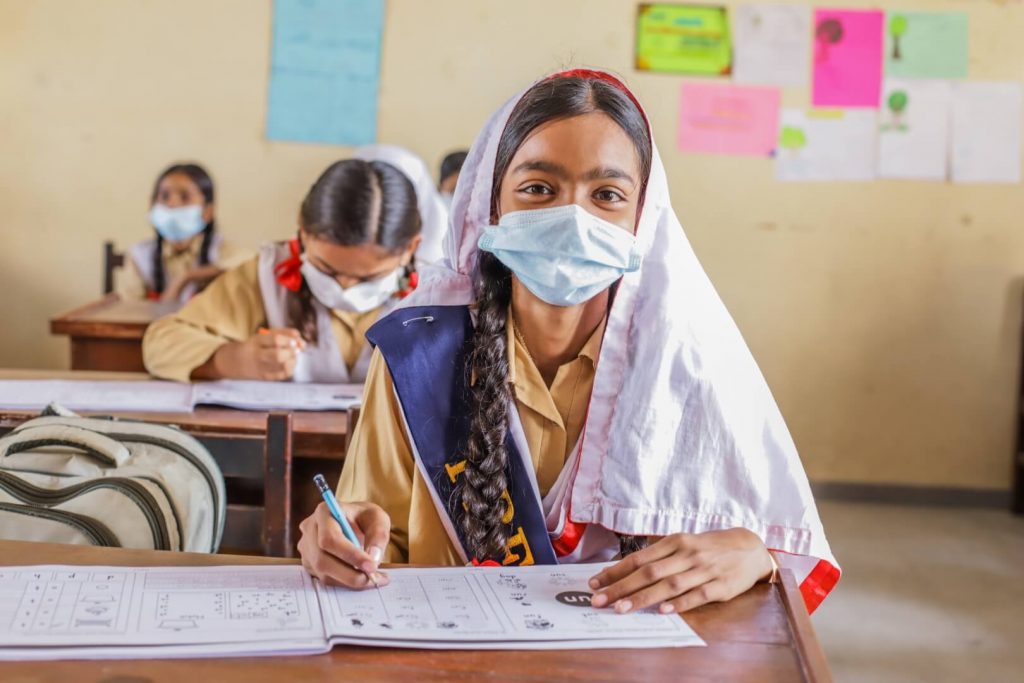
Navigating Through the Learning Loss Caused by COVID-19
Maryam Ansari
TCF’s Remediation Programme accounts for the impact the pandemic has had on learning by providing teachers with diagnostic tools to assess the level of learning loss, relevant teacher guides, and additional training to understand the process of selecting students for one of the two remediation programmes: Aghaz (The Beginning) and Uraan (The Flight).
Over the past year and a half, we have been globally grappling with the reality of COVID-19 and its consequences. It has affected every aspect of society, including the education sector. Pakistan already has the world’s second-highest number of out-of-school children, with approximately 22.8 million children aged 5-16 not attending school. But the pandemic has resulted in newer problems – the students that were previously enrolled in school have suffered a significant learning loss due to the constant school closures and instability in their education the past year.
Student Learning Losses in Pakistan

On average, Pakistani children currently spend 9.1 years in school, but due to the low quality of the school system, they only accumulate 5.1 years of learning. Simulations suggest that recent school closures could result in this number falling to between 4.8 and 4.3 years. These figures range between an optimistic scenario and a pessimistic scenario, in which assumptions are made based on the length of school closures and the effectiveness of distance learning.
Learning loss however is not a new phenomenon – research shows that summer breaks or disruptions to school life because of teacher strikes, natural disasters, or political unrest, can all be a deterrent in students’ academic progress. In 2005, an earthquake in Pakistan resulted in students missing three months of school; four years later, the students were the learning equivalent of 1.5 years behind what they would have been if the earthquake had not happened.
Learning loss does not just affect academic abilities, but also skills that are taught indirectly through education such as personal and socio-emotional skills, as well as mental health. Any response to cope with learning loss would have to account for these as they impact a student’s overall development.
TCF’s Response to Learning Loss
While opening schools is the first step, it is not enough to help students catch up after the pandemic. Students returned to school with varying levels of learning loss, potentially due to differing parental guidance at home during school closures, and previous academic levels.

A focused and tailored plan is required, especially for students from low-income areas as socioeconomic disparities increase learning loss. The World Bank recommends remedial instruction, and robust research suggests that approaches focused on foundational literacy and numeracy skills, even for just 1-2 hours a day, have had a positive impact on learning. In most cases, these targeted programmes are based on prompt evaluations completed directly after the students are back at school.
Based on the global best practices, TCF designed a remediation programme for grades 1-8 that takes into consideration the impact COVID-19 has had on learning. Through a diagnostic assessment and remediation checklist, TCF teachers identified the extent of a student’s learning loss. The diagnostic assessment consists of questions pertaining to concepts studied in previous grades, while the remediation checklist is for teachers that are already familiar with where certain students might be lacking in terms of the essential Student Learning Objectives (SLOs) required for that grade.
In light of the results of the assessments and checklists, as well as a comparison with the students’ previous exam grades, students were placed in one of the following remediation programmes for either Urdu, English or Math:
Aghaz (The Beginning): This is a whole class remediation for collective learning loss, which will begin at the start of the academic year and will go on for a maximum of 8 weeks for rota classes[1], and a maximum of 6 weeks for non-rota classes, to allow students to transition to the regular class syllabus.
Uraan (The Flight): This is an individual or small group remediation programme consisting of 5-7 students, which shall follow a teaching plan tailored to the student’s requirements. This remediation can go on till the end of the academic year, but a student can also be pulled out of Uraan earlier if a teacher feels that he/she no longer needs extra help with the subject.
For both Aghaz and Uraan, TCF has developed specific teaching material that is in line with the TCF curriculum. Teachers were provided with remediation guides and go through communication sessions to further learn how to navigate through the challenge of post-pandemic school life.
Along with this comprehensive remediation programme operating at two levels, all schools had a “Back To School” period for a few days to ease the transition. During this time, stress and anxiety management activities took place to help students cope with the mental health repercussions COVID-19 has had. Students were encouraged to engage in projects that foster their personal development skills.
While remediation is not a strategy to solve all present problems related to school systems, education programmes like the ones implemented in Sierra Leone and Ghana, suggest that targeted, intensive programmes focused on basic literacy and numeracy can reduce the gap between the current and expected level of learning, which is what TCF hopes to achieve.
The promise we made 26 years ago to provide quality education remains intact. With schools across the country now open, we are excited to have our students back in their classrooms where we can encourage them to keep dreaming despite the challenges posed by the pandemic. Together, we can re-build the future of less privileged children across Pakistan.
- Rota classes refer to classes that take place every alternate day of the school week as per COVID-19 protocols. Non-rota classes take place as per normal. ↩

